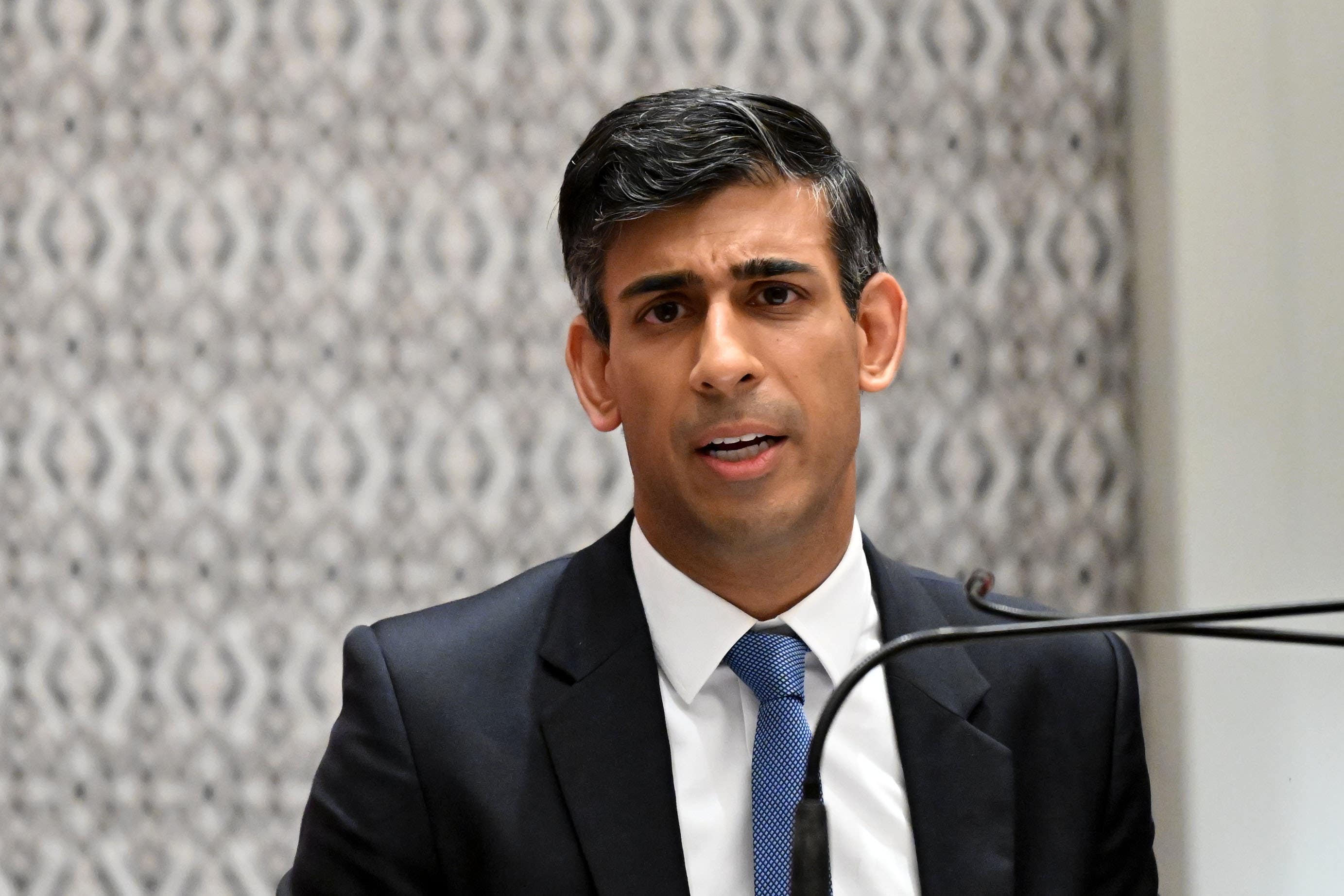Business chiefs and Government clash over calls for immigration to boost growth
Rishi Sunak will face the Confederation of British Industry, which is calling for migrant labour to fill gaps in the domestic workforce.

Your support helps us to tell the story
From reproductive rights to climate change to Big Tech, The Independent is on the ground when the story is developing. Whether it's investigating the financials of Elon Musk's pro-Trump PAC or producing our latest documentary, 'The A Word', which shines a light on the American women fighting for reproductive rights, we know how important it is to parse out the facts from the messaging.
At such a critical moment in US history, we need reporters on the ground. Your donation allows us to keep sending journalists to speak to both sides of the story.
The Independent is trusted by Americans across the entire political spectrum. And unlike many other quality news outlets, we choose not to lock Americans out of our reporting and analysis with paywalls. We believe quality journalism should be available to everyone, paid for by those who can afford it.
Your support makes all the difference.Rishi Sunak is under pressure from business chiefs to use immigration to plug gaps in the domestic workforce.
The Prime Minister will address the Confederation of British Industry (CBI) on Monday off the back of an autumn statement which put the country on course for tax rises and spending cuts at a time of recession and falling living standards.
CBI director-general Tony Danker said a more liberalised approach to immigration was needed to help boost economic growth when public spending is tight.
He said: “The reason why it’s so important is we have literally over a million vacancies in this country, we have 600,000 people who are now long-term unwell, who aren’t coming back to the labour market any time soon.
“That’s why we have to get this shortage occupation list – the list of people that we’re really missing that we aren’t going to get in Britain any time soon – and we have to get them to plug the gap while we re-calibrate the labour market in the medium term.”
On BBC Radio 4’s Today he said: “I’m afraid it’s one of those levers that does help you grow, doesn’t cost money, but I recognise it’s a tough political choice for Conservative politicians.”
But immigration minister Robert Jenrick said employers should look to the “domestic workforce” rather than seeking “lower-skilled labour” from overseas.
“We want to bring down net migration. It’s something that is, as you say, very important to the British people and we’re on the side of the British people,” he told TalkTV.
He added: “If British employers are looking for lower-skilled labour, then the first port of call should be the domestic workforce.
“It should be training up, improving the skills of British people and getting them into the workforce – because there’s still five million British people who are not economically active, including about half a million who left the workforce around the time of the pandemic.
“Those are the sorts of people that we as a Government are most concerned about. If they want to or can return to the workforce, we want to give them the skills to get back into it and British employers should be helping us to do that.”
In his address at the conference in Birmingham CBI boss Mr Danker is also expected to flag concerns over the as-yet unresolved row with the European Union about the Northern Ireland Protocol as one of the major drags on growth.
“Boris Johnson achieved a deal with the EU that allows us to continue to trade tariff and quota free with our biggest trading partner. There’s some good stuff in there, currently locked up,” Mr Danker will say in his opening speech.
“But, still, we argue over the Northern Ireland Protocol. Still, we argue over sovereignty. Get round the table, do the deal, unlock the Trade and Co-operation Agreement. I say to Brexiteers, the best guarantor of Brexit is an economy that grows.
“Its biggest risk is one that doesn’t.”